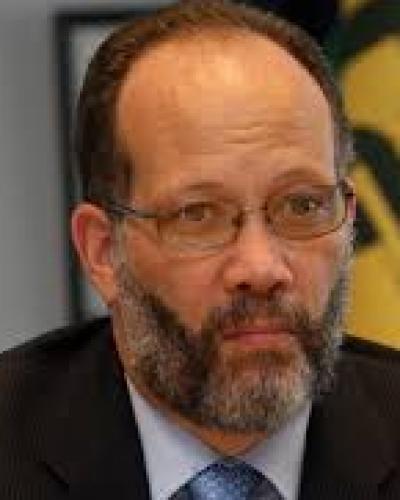Lima, October 19 (CARIBBEAN NEWS-RHC)-- The Caribbean Community (CARICOM) Secretary General Irwin LaRocque continues to champion the cause for vulnerable states to receive concessional financing due to issues related to climate change.
LaRocque has been focusing on this matter in many of his recent engagements and was vocal about the issue at the Small States Forum that was recently held in Peru.
The CARICOM secretary general reiterated that continued access to multilateral and bilateral concessional financing, notwithstanding the classification of CARICOM member states as middle income states, is critical to the sustainable development agenda.
He once again expressed the view that the criteria for concessional financing must not be based solely on GDP per capita, and must be changed to include the economic and environmental vulnerability of small island developing states (SIDS).
LaRocque also addressed this matter during the International Conference on Financing for Development that was held in Addis Ababa, Ethiopia, last July. He also met with the administrator of the United Nations Development Programme (UNDP), Helen Clark, in New York recently, where there was also significant discussion in relation to the issue.
The Forum on Small States was held under the theme “Opportunities and Challenges for Small States to finance Sustainable Development in the post 2015 Development Landscape”. Attendees included chairman of the Small States Forum and minister of finance, trade and the blue economy, Seychelles, Jean Paul Adam; secretary general of the United Nations, Ban Ki-moon; president of the World Bank Group, Jim Yong Kim, as well as Clark.
The forum addressed matters such as financing sustainable development for Small Island Developing States (SIDS), considered the impact of the current global economic situation and discussed prospects for the future.
In a summary released by the chairman of the Forum it was noted that "the economic performance of our countries in the recent past is a reflection of the more limited availability of policy tools and resources and also the challenge that small states face in diversifying economic structures and re-orienting economic activities in new markets and sectors."
In addressing the issue of concessional financing for SIDS, the chairman said it was important to examine important "augmented donor support to help our countries build resilience, address inherent vulnerabilities, and break the low growth, high debt, limited fiscal space spiral, which will continue to have important and long-lasting impacts on our development prospects."
He said small states were grateful for the considerable financial support that the World Bank and other partners have provided in recent years, and look forward to renewed targeted support. He called for scaled-up global assistance to build resilience and ensure that there are no impediments to the Green Climate Fund financing reaching small island states.
The chairman noted that the forum benefited from an extensive exchange of views on the recent conference on Financing for Development in Addis Ababa and the upcoming 21st Session of the Conference of the Parties to the United Nations Framework Convention on Climate Change (COP21/CMP11) in Paris. He said the need for stronger fiscal positions to enable faster restoration of policy space was emphasized.
CARICOM Secretary General Advocates Concessional Financing for Vulnerable States


